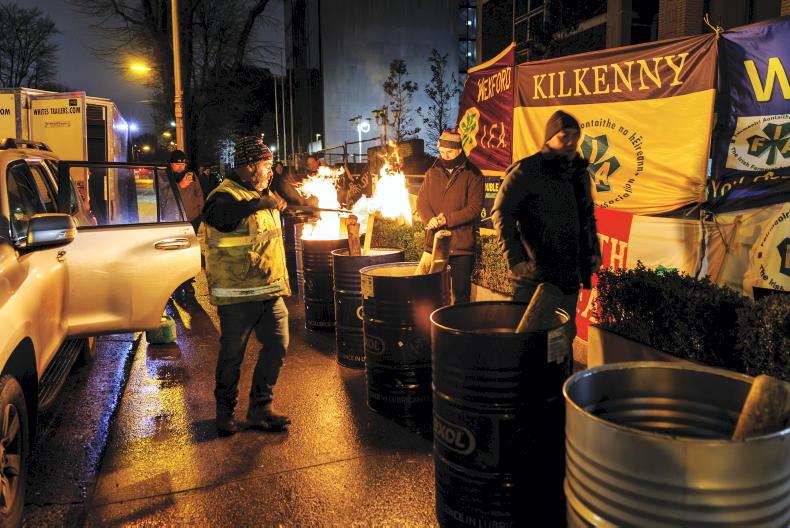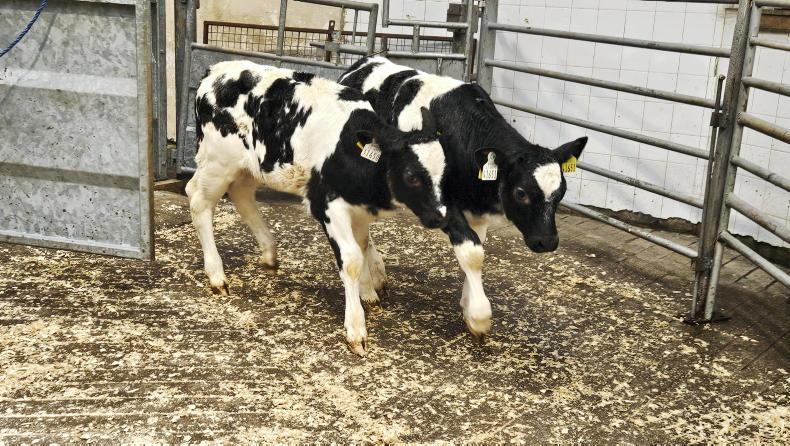Last weekend, my daughter celebrated her First Holy Communion. Ever since the planning for her big day began, she had been adamant that if leggings were out of the question she would concede only to a short dress.
No bows, no lace, no sparkles. Under this instruction, a dress was purchased. It was long but the promise was that granny would cut off 30 inches of fabric below her knee. However, on route to granny’s, I could see she was deep in thought.
Then a question came: “Will the lace bit at the bottom be gone when granny cuts it?“ “Absolutely,” I replied adamantly. “And the bow too.” There was a silence before she said quietly: “I actually like short dresses or really long dresses.”
In the end, the dress was not taken up, bows and lace remained and sparkles were added. Even a little girl’s prerogative can be to change her mind. This may have been her first proper re-evaluation.
Children often base their decisions on what they see their parents and peers do. This week’s cover feature, the second in Maria’s series on foreign farmers, is with Becky Houzé. Becky re-evaluated her career choice from ballerina to dairy farmer.
She, however, accepts that it is nigh on impossible to become a farmer in Jersey unless your family are already farmers. The same could be said for Ireland – a problem for the sector when other career options are so plentiful.
Changes to the way we work
According to Mary Connaughton, director of CIPD Ireland, the percentage of businesses facing a skills shortage is now at 85%. Why? Recent research by her organisation shows that people are re-evaluating their working life (69%) and looking for enhanced rewards (65%) and better career opportunities (62%).
The economy is expanding and with it the workforce, but we don’t have more people. This is exacerbated, she says, by our population structure, with a lot of people retiring and retiring early. She forecasts that “we are in for a big human resources squeeze”.
The annual IFAC farm report recently published agrees, showing that these sentiments also apply to farming. It states that “lifestyle is increasingly an issue on farms. The changes to how we work in the past two years have young people looking outside the farm gates for employment”.
Career guidance is one of the most important jobs in a school as this is where people can learn about other careers. I, like Becky, did not have the opportunity to study agricultural science in school but I was from a farm like her.
Today, how pervasive is the provision of agricultural science in our secondary schools? How many young people are missing a career on farms because they don’t know the career path?
This week, Darina Allen writes about a consumer set that has demonstrated a willingness to pay more for food that supports farmers (p11). The issue with this good news story is that these people are in France.
According to Eurostat, relative to the EU average, Ireland is more expensive than France for food and alcohol. Does this lower cost base make the decision to pay more to support farmers easier?
Darina is asking Irish consumers to re-evaluate their food choices and look to models of how they can do that. If all the research is saying that lifestyle is up for re-evaluation, the question is: does this re-evaluation extend to food purchasing decisions?
Read more
Holidaying at home in 2022? Get off the well-trodden path for a bit if you can
‘Maybe I will start a grass measuring business’
Last weekend, my daughter celebrated her First Holy Communion. Ever since the planning for her big day began, she had been adamant that if leggings were out of the question she would concede only to a short dress.
No bows, no lace, no sparkles. Under this instruction, a dress was purchased. It was long but the promise was that granny would cut off 30 inches of fabric below her knee. However, on route to granny’s, I could see she was deep in thought.
Then a question came: “Will the lace bit at the bottom be gone when granny cuts it?“ “Absolutely,” I replied adamantly. “And the bow too.” There was a silence before she said quietly: “I actually like short dresses or really long dresses.”
In the end, the dress was not taken up, bows and lace remained and sparkles were added. Even a little girl’s prerogative can be to change her mind. This may have been her first proper re-evaluation.
Children often base their decisions on what they see their parents and peers do. This week’s cover feature, the second in Maria’s series on foreign farmers, is with Becky Houzé. Becky re-evaluated her career choice from ballerina to dairy farmer.
She, however, accepts that it is nigh on impossible to become a farmer in Jersey unless your family are already farmers. The same could be said for Ireland – a problem for the sector when other career options are so plentiful.
Changes to the way we work
According to Mary Connaughton, director of CIPD Ireland, the percentage of businesses facing a skills shortage is now at 85%. Why? Recent research by her organisation shows that people are re-evaluating their working life (69%) and looking for enhanced rewards (65%) and better career opportunities (62%).
The economy is expanding and with it the workforce, but we don’t have more people. This is exacerbated, she says, by our population structure, with a lot of people retiring and retiring early. She forecasts that “we are in for a big human resources squeeze”.
The annual IFAC farm report recently published agrees, showing that these sentiments also apply to farming. It states that “lifestyle is increasingly an issue on farms. The changes to how we work in the past two years have young people looking outside the farm gates for employment”.
Career guidance is one of the most important jobs in a school as this is where people can learn about other careers. I, like Becky, did not have the opportunity to study agricultural science in school but I was from a farm like her.
Today, how pervasive is the provision of agricultural science in our secondary schools? How many young people are missing a career on farms because they don’t know the career path?
This week, Darina Allen writes about a consumer set that has demonstrated a willingness to pay more for food that supports farmers (p11). The issue with this good news story is that these people are in France.
According to Eurostat, relative to the EU average, Ireland is more expensive than France for food and alcohol. Does this lower cost base make the decision to pay more to support farmers easier?
Darina is asking Irish consumers to re-evaluate their food choices and look to models of how they can do that. If all the research is saying that lifestyle is up for re-evaluation, the question is: does this re-evaluation extend to food purchasing decisions?
Read more
Holidaying at home in 2022? Get off the well-trodden path for a bit if you can
‘Maybe I will start a grass measuring business’









SHARING OPTIONS